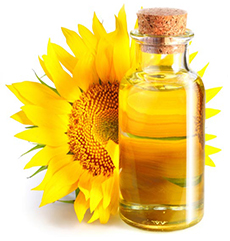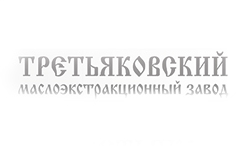Seed meal
Seed meal is a by-product in the production of vegetable oils obtained after pressing and extraction of oilseeds. The process of squeezing oil from oilseed is called pressing. The extraction process involves the separation from the seeds after compression a residual oil content using organic solvents. If in oilcake which is obtained after pressing, the residual oil contains up to 10%, the percentage in seed meal is brought to 1,5 - 2%.

Sead meal is irreplaceable as a high-protein additives in the manufacture of fodder for cattle, pigs, poultry, because it contains natural protein, fiber, vitamins E and B, potassium, phosphorus and other minerals
Sunflower Seed meal is a valuable feed, which contains 30-43% crude protein, rich set of amino acids, in particular high levels of methionine, which has a positive effect on the growth and development of young animals. As compared with oil cake seed meal has more crude protein, but less fat - not more than 1.5%. The content of the husk is not more than 16% (also we produce seed meal without husk).
Sunflower meal is deficient in lysine, but unlike other oilseed meal is substantially free of antinutritive substances. Arabinoxylan index of Sunflower meal against to soybean is 117, which provides a high digestibility of the protein in comparison with other vegetable protein feed (78-80%). The content of vitamin B Sunflower meal is considerably higher than in soy. Sunflower Seed meal is rich in niacin, riboflavin, choline, biotin, pantothenic acid and pyridoxine. In addition to this sunflower meal is an excellent source of vitamin E.
Of the factors limiting the use of sunflower meal (oilcake) can be called chlorogenic and Quinic acid the level of which is 1.56 and 0.48%, respectively, and fiber.
The negative effect of high doses of chlorogenic acid appears in inhibiting of trypsin and lipase, so its level should not exceed 1%. Inclusion in the diet methionine in addition to the norm prevents the negative effects of excess of chlorogenic acid.
Areas of use of sunflower meal:
It is used for feeding purposes of animals, birds and fish. Is used in pure form but also as an additive to feedstuff. Contains up to 43% of easily digestible protein. Sunflower Seed meal increases productivity of animals, improve the quality of livestock products. Increases the content of fat in milk and daily milk yield of cows.
broiler chickens:
Sunflower Seed meal is widely used in poultry feeding. These raw materials are starting to use for chickens from 7-14 days of age. The big advantage of sunflower meal is its resistance to mycotoxins, and, consequently, the minimum potential damages associated with risk factors that accompany the sunflower meal to a lesser extent than other food. For poultry farming seed meal with less husk has feeding value
Laying hens:
When feeding laying hens by feed on the basis of sunflower meal with a high level of fiber (20%) resulted in a significant decrease in feed intake and daily weight gain.




